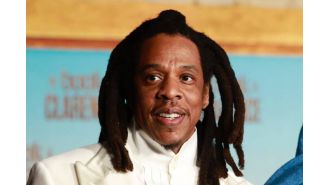Labour wins Blackpool South by a large margin, taking the seat from the Conservatives in a by-election.
Chris Webb won with 10,825 votes in the election after Scott Benton's resignation.

Chris Webb, the Labour candidate, was overjoyed as he celebrated with his wife Portia and their baby Cillian Douglas Webb. He had just won the Blackpool South by-election, a major victory for the Labour Party and a blow to the Conservatives. This win added even more pressure on Rishi Sunak, as it was turning out to be a tough night for the Tories.
With a majority of 7,607 votes, Chris Webb secured 10,825 votes in the by-election triggered by the resignation of former Tory MP Scott Benton following a lobbying scandal. The Conservatives came in second, narrowly beating Reform UK, while Tory David Jones received just 117 votes more than Mark Butcher. Labour leader Sir Keir Starmer praised the win, stating that it was the most important result of the day.
Sir Keir said, "This seismic win in Blackpool South is the most significant result today. It was a chance for voters to directly send a message to Rishi Sunak's Conservatives, and that message was a resounding vote for change. The swing towards the Labour Party in Blackpool South is truly historic and shows that we are firmly back in the service of working people."
The Conservatives' defeat in Blackpool South meant that they have now lost 11 by-elections since the 2019 general election. Notably, four of these losses occurred during Boris Johnson's tenure as Prime Minister, while the remaining seven happened during Rishi Sunak's premiership. This was the worst record for any government in a single parliament since the 1966-70 Labour administration of Harold Wilson, which had 15 by-election losses.
The leader of the Reform UK party, Richard Tice, narrowly missed out on beating the Conservatives into second place. Tory deputy chair Angela Richardson acknowledged that the result was not unexpected, given the circumstances that led to the by-election. She stated, "I think, given the circumstances that caused the by-election in the first place, it was always going to be a difficult one for the Conservatives."
Elections expert Professor Sir John Curtice noted that the only thing that prevented the result from being an unmitigated disaster for the Conservatives was the fact that they narrowly beat Reform UK. He added, "Basically, the project that Rishi Sunak is meant to achieve, which is to narrow the gap on Labour, has yet to show any visible benefits."
Meanwhile, across England, council elections were taking place in 107 authorities. Most of the council seats up for re-election had last been contested in 2021, at the peak of Boris Johnson's popularity as the Covid-19 vaccine was being rolled out. The Tories were facing potential losses in these elections, with Conservative mayors Andy Street in the West Midlands and Lord Ben Houchen in Tees Valley fighting for re-election.
Lord Hayward, a Tory peer and polling expert, predicted that the Tories would lose over 400 seats but stated that Mr. Sunak's position was not in immediate jeopardy. He said, "In recent days, I have been left with the very clear impression that amongst Tory MPs, the 'let's have a leadership election' balloon has been substantially deflated." However, he did acknowledge that there may be a small group of dissenters who may push for a leadership election.
In addition to the council elections, 11 mayoral contests were also taking place, including the London mayoralty between Labour incumbent Sadiq Khan and Tory challenger Susan Hall. Polls consistently showed Mr. Khan ahead of Ms. Hall, with a recent poll giving him a 10-point advantage. However, allies of Mr. Khan expected a close fight, with the result announced on Saturday.
Labour made significant gains in the council elections, winning in areas like Rushmoor in Hampshire, Redditch, and Thurrock. These were key battlegrounds for the party, and their victories were a promising sign for the next general election. The Tories managed to hold on to Harlow by a single seat, which was targeted by Sir Keir on the eve of polling day.
With 29 of 107 councils declared, the Tories had lost three authorities and a net of 826 councillors, while Labour gained four authorities and 59 councillors. The Green Party also made gains, with 13 new councillors, and the Liberal Democrats gained eight. There were also increases for independents and residents' groups. In addition, Labour gained the Cumbria police and crime commissioner from the Conservatives.
Despite some setbacks in previously safe areas, particularly those with large Muslim populations, where the party's candidates may have suffered due to Sir Keir's stance on the Israel-Hamas conflict in Gaza, the Liberal Democrats were confident that they would make further gains in the "blue wall" of Tory battlegrounds in southern England. Green co-leader Adrian Ramsay attributed their party's success to their message of hope resonating with voters across the country.










